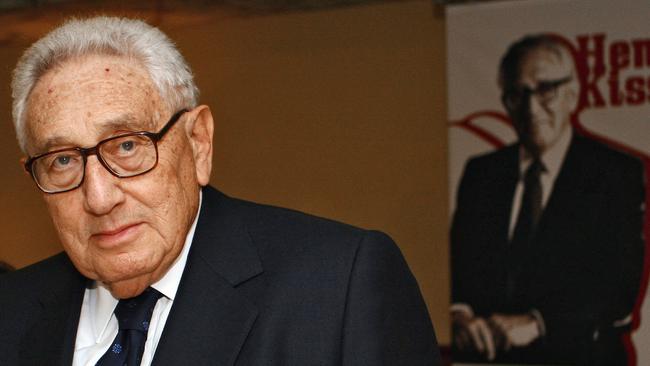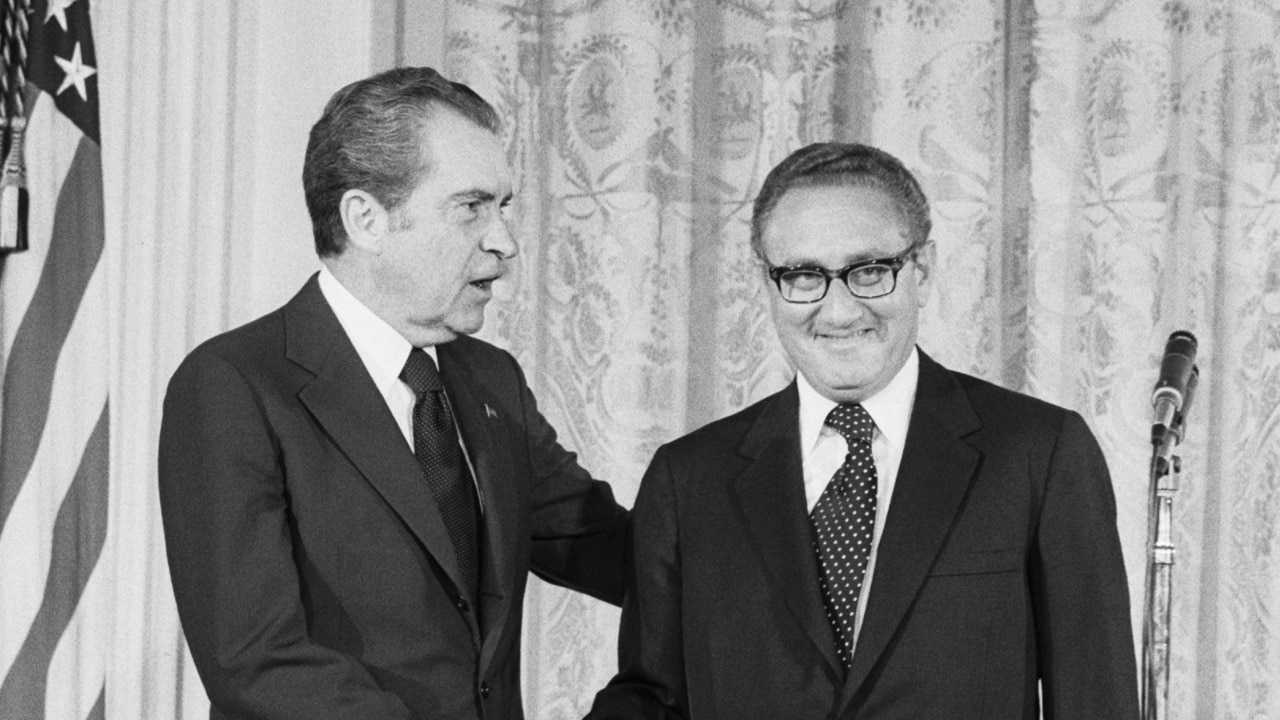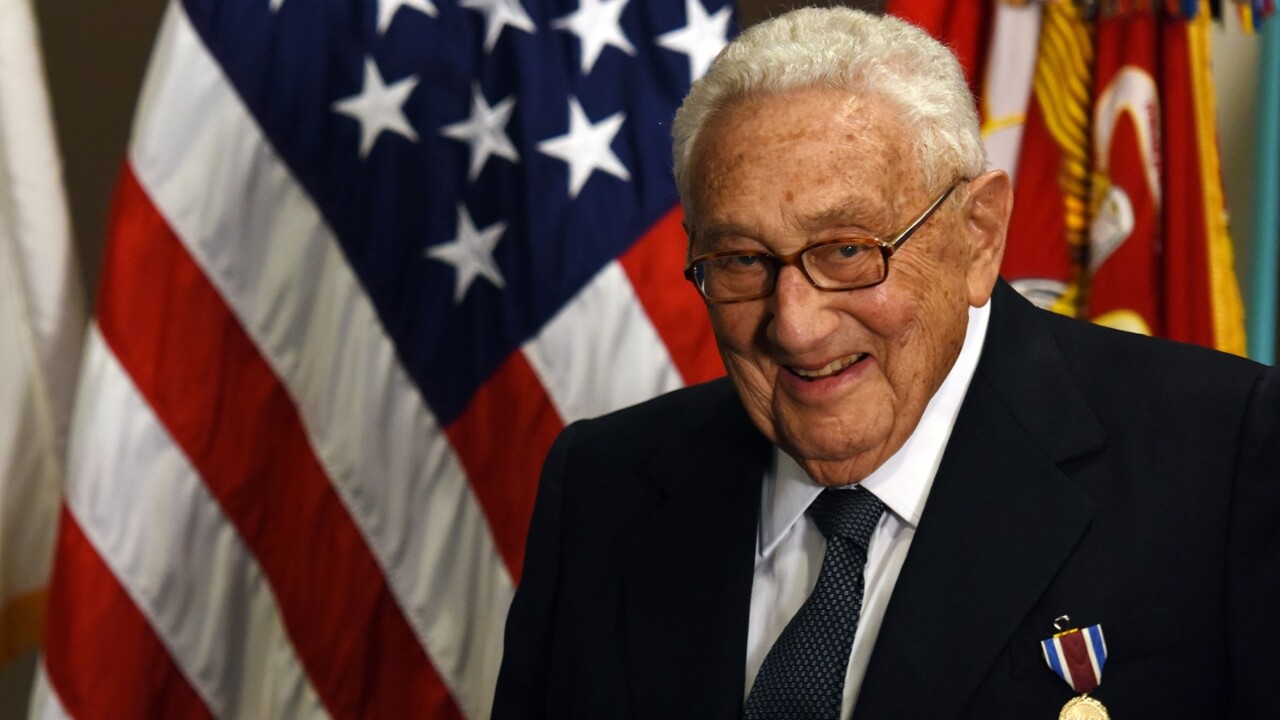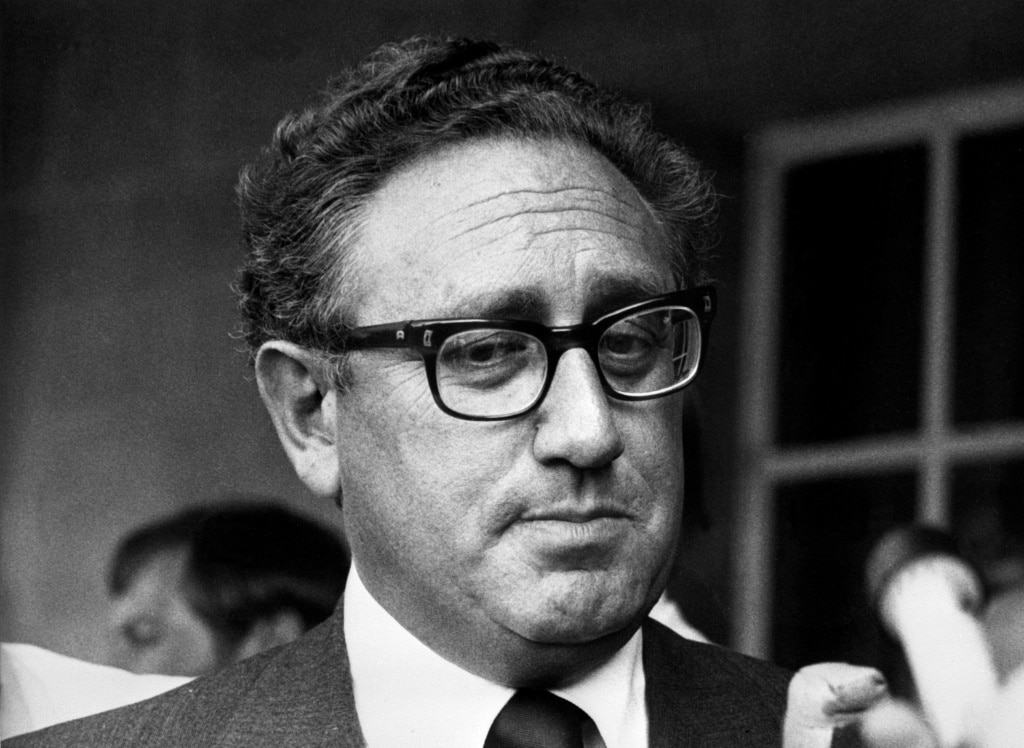Henry Kissinger’s life intersected with history and his influence on global affairs was unrivalled


As likely the last Australian journalist to interview Kissinger, at age 99 last year, I was given a rare opportunity to discuss his extraordinary life growing up Jewish and fleeing Nazi Germany as a teenager then returning with the US Army to battle Adolf Hitler’s regime, as a young academic at Harvard, working in the Kennedy White House, and as secretary of state under Richard Nixon and Gerald Ford.
We discussed Australia’s place in the fracturing global order, balancing historic alliances with the US and UK while living in the fastest growing economic region and dealing with an assertive China. We also discussed Gough Whitlam’s government and relationships with Nixon and Ford for a forthcoming book.
He encouraged Australia to deepen relations with the US and welcomed the trilateral AUKUS nuclear defence pact. As a US ally, Kissinger said Australia was “entitled” to both “protection” and “strategic co-operation”. But he also urged Australia to continue “dialogue” with China and use less inflated rhetoric over Taiwan to minimise “accidents and unnecessary confrontation”. It was wise advice.
I would have been derelict in my duty if I did not push Kissinger on the controversies that dogged his public service and provided fodder for critics, including the conduct of the Vietnam War and secret bombing of Cambodia, the Indonesian invasion of East Timor, the coup in Chile, and more. He was, somewhat surprisingly, willing to engage.

Speaking in his thick Bavarian accent via Zoom from his home in Connecticut for an hour, Kissinger’s mind was sharp, his recall impressive and his responses thoughtful. However he responded to these controversies, he acknowledged, would not satisfy his many critics. Still, it was interesting to listen to him rationalise White House decision-making at the time while accepting errors of judgment in hindsight.
“We certainly don’t claim to be infallible,” he told me. “We tried not to do impetuous things and in almost every case thought through our issues carefully, which doesn’t preclude that other points of view may not have some validity. But on the key issues we tried to act responsibly towards people who differed with us and towards the way history would look at what we did.”

His approach to foreign policy was influenced by his personal experiences, academic studies and belief in pragmatism and realpolitik. He applied these methods with so-called shuttle diplomacy and high-level summitry to guide global policy and US influence, whether it was in Vietnam, the opening to China, pursuing detente with the Soviet Union or peace in the Middle East.
He explained he was, above all, a realist. This does not mean he was without values or principles, or disregarded human rights. He saw the world as it was, rather than the way he wanted it to be. His aim was order and stability, which meant accommodating the interests of other countries to the extent acceptable when applied against national values, and prioritising dialogue and negotiation to avoid conflict.
In other words, diplomacy.
For example, he argued that because North Vietnamese forces and supplies were located in Cambodia and used to wage war against Americans and Australians, it was justified to respond. The result was 100,000 Cambodians were killed and the country was devastated. He reasoned US policy was “correct” but conceded “we could have handled some things more skilfully”. Others say he was guilty of war crimes.
It was riveting to listen to Kissinger discuss the personalities and approaches of the two presidents he knew best, Nixon and Ford, and the two men he thought would make great presidents: Nelson Rockefeller and John McCain. He thought the world lacked leaders with courage, character and virtue, and the two leaders we most need now are Charles de Gaulle and Margaret Thatcher.
In his final years, Kissinger continued to counsel leaders around the world. He was concerned about AI weaponry which he judged more dangerous than the risk of nuclear conflict.
Kissinger said he did not have an ambition to live a long life – he credited his parents, who lived into their late 90s, for providing him the necessary genes – but did want to leave his mark on global events. He was still meeting world leaders and exerting influence until very recently. At age 100, he had nevertheless achieved both.



Henry Kissinger lived a long life that intersected with history and left a significant imprint on US foreign policy and the geopolitics of the postwar world. In almost every obituary, he has been described as influential but controversial and admired or despised, but his role in shaping global affairs outweighs that of any other contemporary diplomat or adviser.